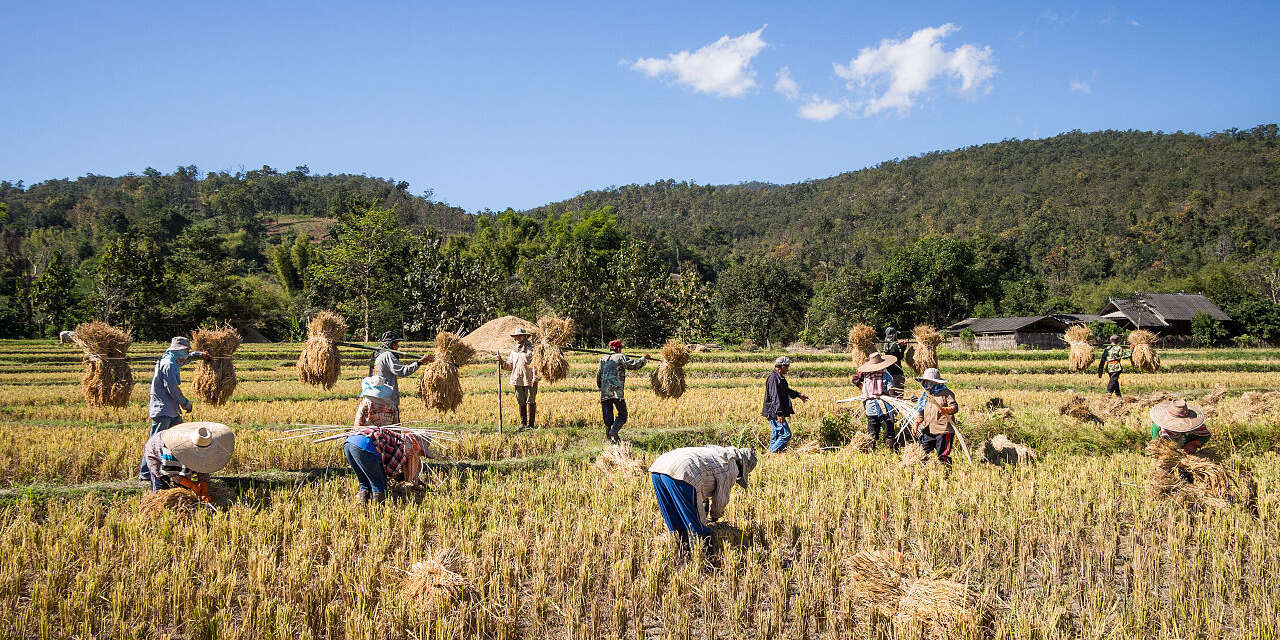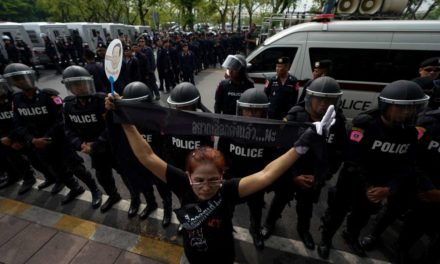June 8, 2022
Mr. Jurin Laksanawisit
Deputy Prime Minister and Minister of Commerce
Ministry of Commerce
Nonthaburi Rd., Muang,
Nonthaburi 11000
Tel: 02-507-7717
Fax: 02-547-5287
CC
Mr. Chalermchai Sri-on
Minister of Agriculture and Cooperatives
Ministry of Agriculture and Cooperatives
3 Ratchadamnoen Klang Rd,
Ban Phan Thom, Phra Nakhon,
Bangkok 10200
E-mail: [email protected]
Mrs. Pimchanok Pitfield
Ambassador
Permanent Mission of Thailand to the World Trade Organization (WTO) and the World Intellectual Property Organization (WIPO)
E-mail: [email protected]
OPEN LETTER: CONCERNED CIVIL SOCIETY SUBMISSION ON AGRICULTURE RELATED ISSUES AT WTO MC12
Dear Deputy Prime Minister and Minister of Commerce Jurin Laksanawisit,
We are writing to you ahead of the 12th Ministerial Conference (MC) of the World Trade Organisation (WTO) being held in Geneva from 12-15 June 2022, with particular reference to key issues related to agriculture and food security that are on the negotiating table.
We want to express our concerns, especially on the issue of the proposed permanent solution for public stockholding (PSH) programmes for food security purposes, and respectfully submit that the government takes into consideration our voices when it negotiates these issues at the WTO.
Several developing countries use PSH programmes both to support farmers’ incomes and maintain production, as well as to directly subsidise, distribute, and grant to the poor the necessary access to food. The ongoing COVID-19 pandemic and the current food crisis have shown the importance of this policy tool for developing countries and Least-Developed Countries (LDCs), particularly towards hunger relief. Any market support price or administered price paid by the government while buying for such PSH programmes can ensure a remunerative price for farmers that covers their costs. In addition, with the current escalation in food, fertiliser and fuel prices, farmers across the global south are facing prohibitive input costs, further underlining the need for subsidies.
However, the Agreement on Agriculture (AoA) of the WTO has mandated that such subsidies cannot exceed the ‘de minimis’ limit of 10% of the value of production per product. In this case it is important to note that price support calculations as per the AoA are based on 1986-88 prices, which are far lower than the current global prices. Also, these calculations are on the entire production that is “eligible” to receive this subsidy rather than the actual procured volume that receives the subsidy. This method artificially inflates the subsidy, making it prone to breaching ‘de minimis’ limits.
In 2013, at the WTO Bali MC, the G33 group of developing countries managed to get an Interim Peace Clause (PC) to continue providing such subsidies and not be sued for breaching the ‘de minimis’ limit. However, the PC had many complex conditionalities which made it very difficult to implement. One of those conditions which is of great significance, especially for Thai small-scale farmers, is that only programmes which were in operation in 2013 can use the PC. This means Thailand cannot use the current PC unless the scope is expanded to cover new programmes. This robs the Thai Government of the sovereign right to enact such farmer-friendly policies in the future.
The Bali decision mandated a permanent solution to be in place by 2017, but in spite of several proposals submitted by the G33 and the African Group, this has not happened. Their demand has been to get this long overdue outcome at least by MC12 while developed countries and dominant leaders of the Cairns Group (of which Thailand is a member) have consistently opposed this.
Recently nearly 80 WTO members comprising the African Group, the African, Caribbean and Pacific (ACP) Group and the G-33 Group of countries submitted a joint proposal on a permanent solution (JOB/AG/229). This proposal suggests several improvements to the Bali Decision, including extending it to all programmes, old and new, and adjusting the Reference Price to reflect current market conditions. The proposal also provides safeguards against misuse of such an instrument. But the developed countries have refused to even consider it and have also been insisting on delaying any outcome on this issue to MC 13 slated for 2024 or even later.
In this context, we are shocked to read that the Government of Thailand has been supporting the position of the rich countries and the bigger players of the Cairns Group such as Australia, Brazil, New Zealand, Costa Rica and others on this matter. According to news reports, Thailand has even questioned a footnote in the recent document placed by the WTO Director-General that indicates the possibility of a permanent solution on PSH at MC12. This reflects Thailand’s clear objection towards the pushing of a permanent solution.
We would expect that Thailand’s interest is in aligning with other developing countries and LDCs in asking for a permanent solution by MC12, as this can be a critical policy instrument for the government to support its small-scale farmers and the poor, especially the urban poor and slum dwellers. Even though Thailand is a food exporter, it still has a vulnerable farming sector and there are millions of small-scale farmers who desperately need the government’s support. The current multiple crises will only deepen as we grapple with the fallout of the pandemic and environmental disasters, in which PSH programmes are increasingly important for developing countries and LDCs. At the minimum, Thailand should show solidarity with the 80 countries and fully support rather than oppose this proposal.
Thailand should support not only the permanent solution on public food stockholding programmes for food security purposes, but also the Special Safeguard Mechanism (SSM), which would allow the government to raise import duties if there is a sudden import surge. Particularly as the continuation of the rich countries’ subsidies and premature liberalisation in agriculture pushed by the WTO have triggered import surges across developing countries, and have generated volatility, uncertainty, and unfair competition for their farmers.
We want to call on our government to show solidarity with our own small-scale farmers and food-insecure people, as well as stand together with other developing countries and LDCs. Only then can the global south move ahead. Further, Thailand should not be aligning with the powerful countries and agribusiness corporations as our interests are not overlapping but at conflict. The rich countries have used massive subsidies through Aggregate Measurement of Support (AMS) entitlements and the ‘Green Box’ to rob developing country farmers of their incomes and fair share of global markets. Without correcting those rules, the WTO will create a catastrophe for small-scale farmers and contributing to the food crisis in Thailand and globally.
Signed by
- Alternative Agriculture Network (AAN)
- Assembly of the Poor (AoP)
- BioThai Foundation
- Community Resource Centre (CRC)
- Isaan Land Reform Network (ILRN)
- Law Long Beach (LLB)
- Landers
- Legal Center for Human Rights
- Northern Peasant Federation (NPF)
- NGO Coordinating Committee on Development in the Northeast (NE NGO-COD)
- NGO Coordinating Committee on Development Thailand (NGO COD Thailand)
- People’s Democracy Movement (PDM)
- People’s Empowerment Foundation (PEF)
- People’s Movement for a Just Society (P-Move)
- Society of Young Social Innovators (SYSI)
- Southern Peasants Federation of Thailand (SPFT)








